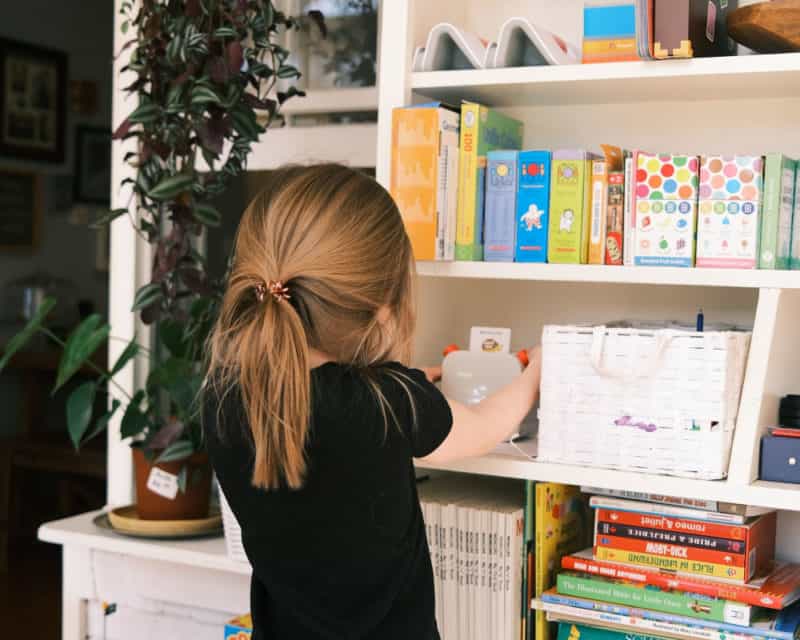Over the last decade, homeschooling has become an increasingly popular decision for parents and their children. There are many reasons why parents choose to homeschool their children, but it always boils down to one simple fact: they want what’s best for them and their families.

Homeschooling is particularly ideal if you have a child with special needs or disabilities that cannot be met by public schools, your child isn’t learning as quickly as others at school, your son or daughter prefers an alternative education style, or if you just want more control over how much time your kids spend on homework!
However, the question remains: what style of homeschool should I use to educate my child? In this blog post, we break down the different homeschooling methods, alongside their benefits and limitations.
These include:
- The Classical Method
- The Charlotte Mason Method
- The Montessori Method
- Eclectic Education Approach
The Classical Method
The Classical Method is an established traditional homeschooling approach, where students follow a structured curriculum. This style of learning was birthed in the 1700s by the Prussian Jean Frederic Pestalozzi who believed that all children were born with an innate and unique ability to learn if their hands are guided by materials specifically designed for them.
The approach references ideas dating back to Ancient Greece and adopts a three-stage methodology known as the Applied Trivium. The first stage of the trivium focuses solely on literacy/numeracy aspects and then advances to promote critical thinking within children. The third and final level of the trivium allows students to explore abstract concepts through analysing historically established literature and prompt them to produce essays or speeches that examine these pieces.
The classical method is perfect for your child if they love famous works of literature and you prefer educating your child in a way that promotes intelligent debate rather than traditional testing or quizzing.
Benefits of the Classical Method
- The Classical Method has withstood the test of time and has established itself as one of the most effective homeschooling methods.
- Children gain critical skills by developing a sense of ‘questioning’ rather than ‘memorising’.
- The structured and ordered learning environment tends to increase children’s ability to engage with their learning and concentration.
- Classically-educated students typically are highly informed in the area of established western literature.
Limitations of the Classical Method
- The Classical Method replicates a traditional school in terms of ‘desk work’ and establishing a rigorous learning schedule. Therefore it may not be suited for parents looking for alternative education models that promote autonomy and creativity.
- Kids who are homeschooled using this method may have a hard time adjusting to public school if they haven’t been exposed to it before since the child has only learned from being instructed by adults.
- As this style focuses on literature, it may clash with students who have learning difficulties (such as dyslexia) or are more artistically inclined.
The Charlotte Mason Method

The Charlotte Mason Method of Homeschooling is a very popular form of homeschooling. The method was created by the educator, Charlotte Mason. She believed that children learn best through direct experience with things in their natural surroundings. She thought that children learn better if they are able to make connections with the things around them.
The Charlotte Mason homeschooling method is an educational philosophy for homeschoolers, but it can also be applied in traditional schools too. This method of homeschooling is still used in some schools today. The Charlotte Mason Method consists of three main principles: Education by Living Things, A Liberal Education and Teaching the Trivium. She believed that children learn best when they are able to connect their knowledge with what was going on in real-life situations. This would also allow them to learn from their experiences and mistakes.
The Charlotte Mason Method is perfect for your child if you don’t like the pressure that emerges from academic grades or testing. Furthermore, this method is perfect if you’re working on a zero budget and prefer your child learning from ‘living literature’ rather than traditional textbooks.
Benefits of the Charlotte Mason Method
- Children seem to learn best when they are able to connect their knowledge with what is going on in real life situations.
- Kids don’t get bored or distracted by things around them because it’s all about the direct experience
- Charlotte Mason homeschooling method allows children to explore subjects without being afraid of making mistakes.
- The methodology is low-cost and has many great downloadable resources that are free.
- Unlike the Montessori schooling method, this style is suited to non-professional educators.
Limitations of the Charlotte Mason Method
- This methodology can be time consuming because you have to plan your activities in advance and make sure that your kids will only go out into nature when the weather is nice, etc.
- The methodology is based intensely around Christian ideology and therefore the education model is targeted at this religious demographic. Therefore, it may not be so useful for non-Christian parents trying to provide their child with a neutral approach.
- Charlotte Mason can lack on at times on their approach to educating math and science, therefore parents often have to utilise other resources to incorporate within this homeschooling methodology. If you would like to educate your child with this method, there are plenty of resources available to ensure sound development of your child’s education. For example, Cluey Learning provides resources for homeschooling such as online tutoring or resources sheets.
The Montessori Method

The Montessori Method was created by Dr Maria Montessori in 1907 and has since been adopted as a homeschooling method for many families around the world. The Montessori Method is an educational approach that allows children to explore their surroundings at their own pace. It also helps children build independence, imagination and confidence.
Children who would benefit from a Montessori style of homeschooling are those who learn best by doing and exploring, as well as children with short attention spans. They are given greater control over their choices of activities and subjects to learn about while parents play more of an advisory role than the direct instructors. This type of schooling empowers children by giving them the resources they need to achieve academic success without relying on external motivation or rewards. If you’re looking for an individualised learning environment where your child can explore their interest in a hands-on way, this homeschooling is perfect for you.
While the Montessori Method can be beneficial for some children, it does have limitations such as lack of academic rigour and not preparing students for college-level studies or careers in science and math fields.
Benefits of the Montessori Method
- Children have greater control over their education through individualised learning plans.
- Encourages independence and creativity that would be perfect for artistically inclined children.
- Students learn through self discovery and playtime.
- The Montessori Method is accessible for children with intellectual disabilities, especially for those who need to move, touch and speak while learning.
Limitations of the Montessori Method
- As Montessori is an official teaching method, you will need to complete a program to be certified as an educator.
- Academic rigor lacking compared to traditional schools/homeschooling methods more common in higher levels.
- Some students may lack skills necessary to progress to higher levels.
- Some parents prefer a more structured curriculum and pace in their child’s education which the Montessori Method does not offer while others find this flexibility beneficial.
Eclectic Education

The Eclectic Education style of homeschooling is an alternative to the traditional approach. The first thing you should know about Eclectic Education is that it has been around for over a century. The goal of the homeschooling parent using this style would be to provide their child with an education in all areas of life, not just one specific area such as math or science.
The learning environment is student-centred, so your child will be able to learn what interests them and how they want to learn it. Your child will be able to enjoy hands-on experiences, as well as be allowed time to explore their own interests. The homeschooling parent using an Eclectic Education style does not have to follow any preset curricula or guidelines but can learn as they go.
This is also great for you if you’re relatively new to homeschooling and need time to ease into it. Your child will be able to move at their own pace through the subjects they enjoy, while still being challenged by those that may not interest them so much.
Benefits of Eclectic Education
- A student can learn at their own pace.
- Hands-on learning experiences are encouraged.
- The child gets to explore their interests and pursue them further if they want to.
- It is great for parents who need time to ease into homeschooling or do not like following a preset curriculum (or there is none in place).
Limitations of Eclectic Education
- It is difficult for parents to see how the child’s learning will progress without a preset plan.
- The children may get bored with certain subjects after doing them multiple times, even though they are still mastering these skills.
- Homeschooling can become expensive if you need to buy extra materials or whatnot to support your child’s learning.
- A parent may not know enough about a subject to be able to teach it properly.
- It can take longer for the child to complete their education if they are exploring different interests and topics instead of sticking with one or two at a time.
Conclusion

In conclusion, if you’re interested in homeschooling your child, you should consider which method best suits your needs. Each homeschooling method has its own benefits and limitations, but it’s important to think about the type of learner your child is before choosing a curriculum that could be ineffective or counterproductive for their learning style.

